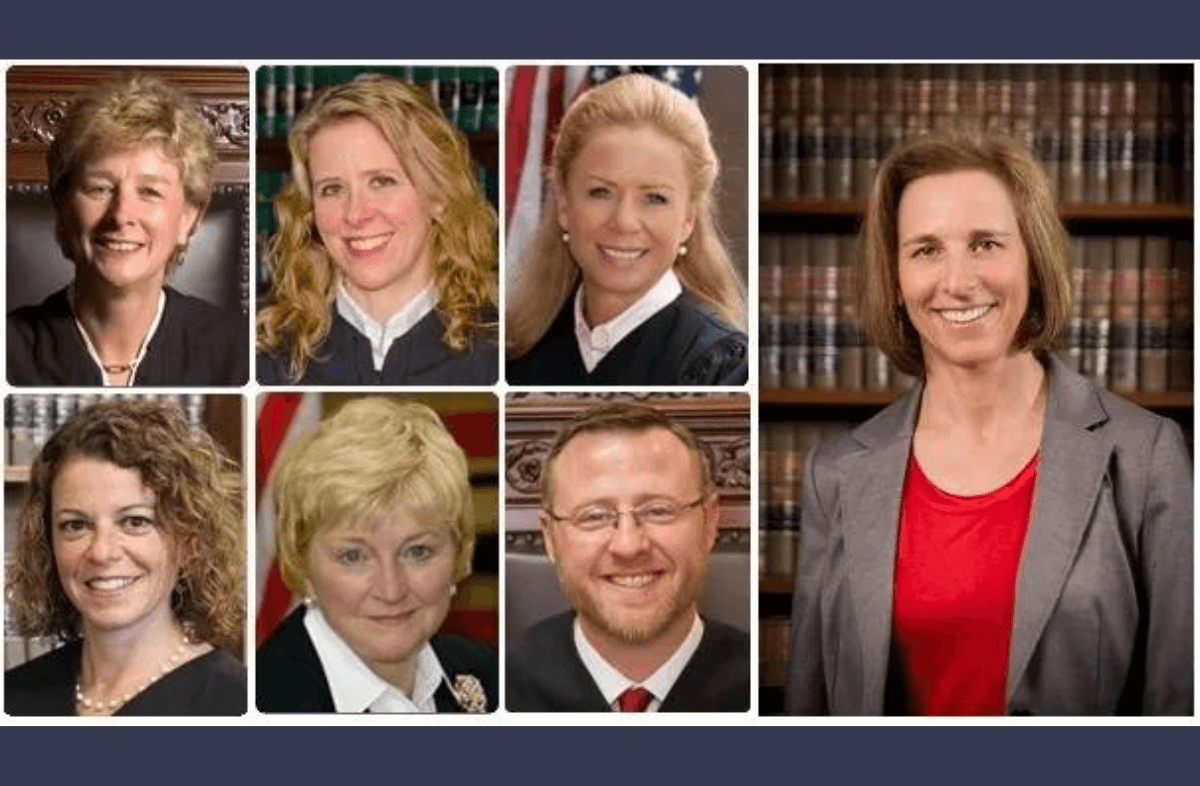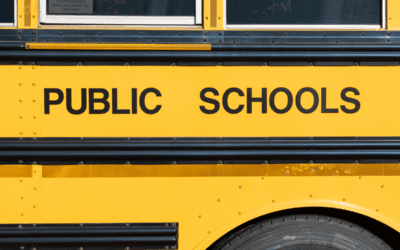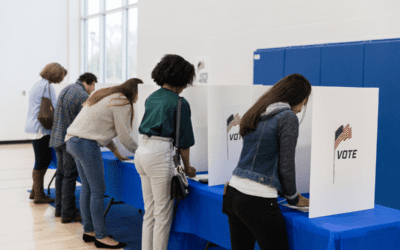
Let’s not overhype it: Voting in Wisconsin’s April election isn’t as exciting as a presidential contest. But it’s just as, if not more, consequential.
We’ve been sharing story after story about the impact the person who fills Wisconsin’s open Supreme Court seat will have on abortion access, voting rights, fair maps, and the state’s future for the next 10 years *at least*. Today, we wanted to highlight a few things you probably don’t know about the court…
RELATED: Answers to Every Question You Might Have About Wisconsin’s Spring Election
1. Wisconsin is one of just 13 states with nonpartisan judicial elections. That means the two candidates that end up on the April ballot can be two conservatives, two liberals, or one from each party. In 24 states, Supreme Court races are partisan, which means the final two candidates must be from opposite parties.
2. The current state Supreme Court had the highest ratio of female justices in the country. Six of Wisconsin’s seven Supreme Court justices are women. Conservative justice Patience Roggensack, who’s been on the court since 2003, is not running for a third term.
3. The current chief justice, conservative Annette Ziegler, is the only justice in Wisconsin history to be given a public reprimand by her peers. In an unprecedented 5-to-1 decision, Ziegler’s colleagues flagged her for presiding over dozens of cases where she had an apparent conflict of interest, including a dozen involving a bank where her husband served on the board of directors and 22 involving companies in which she owned over $50,000 of stock.
4. You’re probably familiar with one of Wisconsin’s most recent Supreme Court justices for a very different reason. Conservative Michael Gableman, who stepped down in 2018 after a single term, went on to lead the investigation into the state’s 2020 election, which cost taxpayers more than $2 million and found no evidence of fraud.
5. The next court will likely decide the future of the state’s 1849 abortion ban. In 2023 or 2024, the Wisconsin Supreme Court is expected to hear a lawsuit brought by Governor Evers and Attorney General Josh Kaul against the state’s 170+ year-old policy, which will determine whether Wisconsin remains among the 13 states that have effectively banned all abortions.
Think this year’s Supreme Court battle is contentious? A decade ago, things got physical between two justices… allegedly. Click here to read more.
Click here to check your registration status and/or find out what else is on your ballot.

Support Our Cause
Thank you for taking the time to read our work. Before you go, we hope you'll consider supporting our values-driven journalism, which has always strived to make clear what's really at stake for Wisconsinites and our future.
Since day one, our goal here at UpNorthNews has always been to empower people across the state with fact-based news and information. We believe that when people are armed with knowledge about what's happening in their local, state, and federal governments—including who is working on their behalf and who is actively trying to block efforts aimed at improving the daily lives of Wisconsin families—they will be inspired to become civically engaged.


Opinion: Many to thank in fair maps victory for Wisconsinites
On February 19, 2024, Governor Tony Evers signed into law new and fair state legislative maps, bringing hope for an end to over a decade of...

Opinion: Empowering educators: A call for negotiation rights in Wisconsin
This week marks “Public Schools Week,” highlighting the dedication of teachers, paras, custodians, secretaries and others who collaborate with...

Op-ed: Trump’s journey from hosting The Apprentice to being the biggest loser
Leading up to the 2016 election, Donald Trump crafted an image of himself as a successful businessman and a winner. But in reality, Trump has a long...

Not just abortion: IVF ruling next phase in the right’s war on reproductive freedom
Nearly two years after the US Supreme Court overturned Roe v. Wade, another court is using that ruling to go after one of the anti-abortion right’s...





